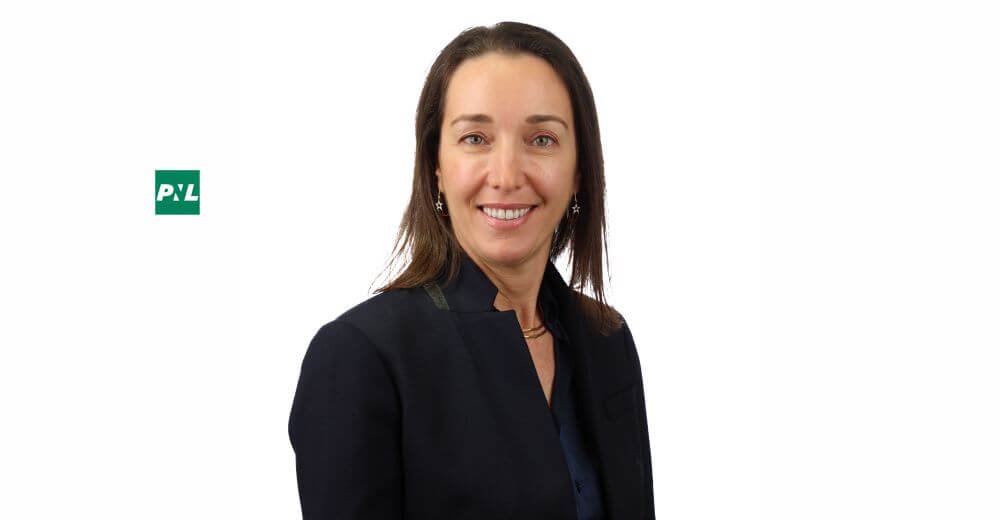As the demand for more precise, targeted drug delivery systems grows, companies are innovating to develop technologies that minimize side effects and improve therapeutic outcomes. PolyPid, Ltd. (NASDAQ: PYPD) is making significant strides in the field of drug delivery, driven by its innovative approaches to addressing complex healthcare challenges. Under the leadership of CEO Dikla Czaczkes Akselbrad, PolyPid is at the forefront of developing advanced localized drug delivery systems, particularly through its proprietary PLEX technology. Focused on improving patient outcomes in areas such as infection prevention and oncology, PolyPid is dedicated to creating solutions that offer precise, controlled, and prolonged drug release.
In this interview, Dikla shares insights into the company’s recent innovations, the challenges of developing new technologies, and the future of drug delivery at PolyPid!
Can you describe a recent project or technology your company has developed that exemplifies innovation in drug delivery?
PolyPid’s proprietary PLEX (Polymer-Lipid Encapsulation matriX) technology pairs with Active Pharmaceutical Ingredients (APIs), enabling precise delivery of drugs at optimal and customizable release rates over durations ranging from several days to months. Our platform solves a problem that many drugs face – the need to inject high concentration of drug systemically, close to toxic levels, to reach an effective concentration at the target. PLEX can be applied locally at the target area, such as surgical incision, bone or tumour, and release drug over time with minimal to no systemic exposure and with minimal to no systemic side-effects.
D-PLEX100, PolyPid’s lead product candidate, is designed to provide local prolonged and controlled anti-bacterial activity directly at the surgical site to prevent Surgical Site Infections (SSI). Following the administration of D-PLEX100 into the surgical site, the PLEX technology enables prolonged and continuous release of the broad-spectrum antibiotic, doxycycline, resulting in a high local concentration of the drug for a period of 30 days reducing the risk of SSI, with additional potential to prevent SSIs caused by antibiotic-resistant bacteria at the surgical site. D-PLEX100 received Breakthrough Therapy Designation from the U.S. FDA for the prevention of SSIs in patients undergoing elective colorectal surgery. D-PLEX100 is currently in Phase 3 SHIELD II trial for the prevention of surgical site infections in patients undergoing abdominal colorectal surgery with large incisions.
What challenges do you face in the development and implementation of new drug delivery technologies?
Developing drug delivery technology involves complex challenges that require multidisciplinary expertise and innovative problem-solving. One key challenge is fine-tuning the dosage and release rate of therapeutic agents at target sites, ensuring a linear release at the right concentration without degradation or unwanted side effects. We have spent over a decade developing and testing the PLEX platform, which reliably delivers APIs from small molecules to large antibodies over predefined periods.
Biocompatibility is another significant concern, as drug delivery systems must not provoke immune responses or toxicity. Our PLEX platform is made of FDA-approved polymers and lipids that integrate seamlessly into the body. Additionally, stability is crucial for complex molecules like proteins and nucleic acids, which can degrade before reaching their targets. Our analytical data demonstrates that PLEX encapsulates these molecules, protecting them from degradation while releasing them intact and active over time.
Scaling these technologies from laboratory research to clinical applications poses further hurdles. Small-scale experimental setups often face obstacles in mass production, particularly in maintaining consistency, efficacy, and safety. Over the years, we have developed strong capabilities, enabling us to manufacture PLEX and our lead product, D-PLEX100, in our in-house GMP-approved facility on a commercial scale.
In your opinion, what trends are currently shaping the future of drug delivery systems?
The future of drug delivery systems is being shaped by several key trends. Local drug delivery systems are rapidly advancing to provide more precise, targeted treatments that minimize side effects. Intratumoral drug delivery for cancer patients is particularly significant, as it allows for localized treatment that reduces systemic toxicity and enhances drug concentrations in the tumor microenvironment.
Maintaining therapeutic effects over extended periods without frequent dosing is also critical, with technologies like PolyPid’s PLEX, hydrogels, and liposomes being optimized for reliable drug release, which improves patient compliance. Furthermore, the integration of minimally invasive techniques, such as ultrasound-guided injections, enhances precision in delivering therapies while reducing damage to surrounding tissues. Overall, these trends are contributing to a shift toward less invasive treatments that aim to improve patient outcomes.
What advice would you give to startups looking to enter the drug delivery space?
For startups entering the drug delivery space, several key strategies can help navigate this complex landscape. First, it’s essential to understand the unmet needs in healthcare, focusing on solutions that address significant clinical problems rather than making incremental improvements.
Building a strong, multidisciplinary team is crucial, as drug delivery systems require expertise in chemistry, biology, engineering, clinical, and regulatory fields.
Start planning regulatory pathways early, as the healthcare industry is highly regulated. Collaborating with regulatory experts can help ensure compliance with safety and efficacy standards.
Forming strategic partnerships with larger pharmaceutical companies, research institutions, or manufacturers can provide valuable resources, funding, and expertise to accelerate progress.
Lastly, protecting intellectual property (IP) is vital in this competitive market. A strong IP portfolio safeguards innovations and enhances attractiveness to investors and partners, making it essential for long-term success.
Looking ahead, what are your goals for your company in the next few years regarding drug delivery innovations?
PolyPid’s goals in the coming years center around advancing our PLEX platform and expanding its pipeline of therapeutic solutions. Our immediate priority is the successful completion of the D-PLEX100 Phase 3 trial by Q1 2025, followed by the submission of a New Drug Application (NDA) for regulatory approval in markets worldwide. This trial will serve as real-world validation of the PLEX platform, which has been tested in over 1,000 patients.
Once we complete the D-PLEX100 trial, we will shift our focus to OncoPLEX, designed to deliver localized, high-concentration chemotherapy over three weeks in solid tumors. In parallel, we plan to seek partnerships and strategic collaborations to combine PLEX with innovative molecules like antibodies, siRNA, and STING agonists, where local prolonged delivery offers clear advantages.
I strongly believe that the PLEX platform can have a meaningful impact in oncology, especially with the movement toward interventional approaches to treatment. My vision is to establish PolyPid as a major player in the drug delivery space, with a comprehensive pipeline of products developed in collaboration with leading biopharmaceutical companies.
Dikla Czaczkes Akselbrad- CEO
I have had the privilege of serving as the Chief Executive Officer of PolyPid for the past two years, after holding the position of EVP and CFO since 2017. My journey in the life sciences sector spans over two decades, where I have navigated companies through critical financial, business, and strategic transitions on a global scale, including drug research and development and partnerships with Big Pharma. Throughout my career, I have raised over $450 million and led several IPOs to secure resources for growth and innovation.
Before joining PolyPid in 2014, I was the CFO at Compugen Ltd., a biotechnology company, and prior to that, I worked at Packet Technologies Ltd. I began my career as an audit manager at Ernst & Young. I hold a B.A. in accounting and economics, an MBA from Tel Aviv University, and am a certified public accountant in Israel. In my role at PolyPid, I leverage this diverse experience to drive the company’s strategic vision and foster innovation.




